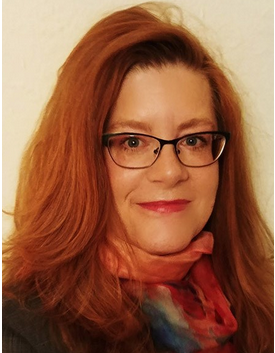CTE Educator Efficacy and Retention
October 11, 2019
By Linda Van Doren, ECMC Foundation Fellow
 As an ECMC Foundation Postsecondary CTE Dissertation Research Fellow, I have the privilege of being able to work alongside fellow practitioners, researchers, scholars and mentors who are among the best and brightest in our field.
As an ECMC Foundation Postsecondary CTE Dissertation Research Fellow, I have the privilege of being able to work alongside fellow practitioners, researchers, scholars and mentors who are among the best and brightest in our field.
Daily, we experience the challenges that exist in postsecondary CTE, and we are working on research projects that will contribute to the growing—and needed— body of research to support strong policies and practices in our field.
I currently work as Vice President of Instruction at Emily Griffith Technical College, the postsecondary and adult education arm of the Denver Public School district in Denver, CO. The research project I’m working on this year is focused on a problem I face every day at my job: hiring and retaining postsecondary CTE instructors. This problem is not only here in Denver, but faced by hundreds of my peers across the state and the nation.
In the current environment of increasing demand for middle-skills jobs, growing enrollment in CTE and innovative programs such as apprenticeship, and a shortage of instructors, we have the challenge of recruiting and onboarding teachers who possess a wealth of industry content knowledge and skills needed to teach. Many who technically qualify, may lack a foundation of how to teach adults or how to frame learning and instruction to ensure student success. Despite this challenge, CTE programs are critical in meeting stated outcomes of student completion, filling jobs in in-demand industries, and in preparing students to obtain their appropriate industry licenses.
Last year, postsecondary CTE programs throughout Colorado served over 34,500 students in 16 career clusters aligned to the jobs that fuel our state’s fast-growing economy. To support strong instruction and outcomes, Colorado has a streamlined postsecondary CTE teacher credentialing process that invites industry experts into the classrooms and provides them a pathway to certification within the first three years of their teaching careers. Oversight for credentialing CTE faculty in Colorado at the Colorado Community College System (CCCS) Office of Career and Technical Education.
My current research study uses the construct of teacher efficacy, which is an indicator of teacher retention, to better understand how our institutions can support and retain postsecondary CTE faculty. One of the variables I’m examining in identifying teacher efficacy is the state’s credentialing process. My research partner is the CCCS Office of CTE, which is the oversight body for the credentialing process. Together, we hope to better understand what variables may positively relate to increased feelings of teacher efficacy, including the required credentialing process. From my own experience, teachers at our school indicate that they appreciate the credentialing process, and many suggested that they wished they’d been credentialed earlier in their tenure. As a result, our school changed our onboarding process to ensure that teachers get their CTE credential within their first year of teaching.
As a practitioner, I make policy and process decisions that support retention and success of our faculty, which in turn creates an environment for students to be successful. Like my peers, I see first hand the impact that instructors have on program successes (and failures!) including student retention, completion, and labor market outcomes. I would encourage more research and benchmarks on good practice that I could use when I make decisions to ultimately support successful student outcomes. Teachers are at the core of a school’s ability to offer robust and academically rigorous CTE programs. Having research to help inform and guide decisions in what our schools’ practices and policies are to support our faculty’s feelings of efficacy is critically important. As a public, postsecondary technical college, the salaries that we offer will never be able to compete with what our CTE teachers can make in industry, but the need to retain the best teachers is critical. Any who work in the CTE space know the fear of losing a single-instructor, as the impact to the students and program can be devastating. Supporting our teachers, and understanding what variables contribute to their own positive feelings of efficacy is critical to our students, our programs, and our state’s economy.
About the ECMC Foundation Fellow
Linda Van Doren is and doctoral candidate in the Leadership for Educational Equity program at the School of Education and Human Development, University of Colorado Denver. She is an ECMC Foundation Fellow of the CTE Postsecondary Research Program at NC State – Sponsored by the ECMC Foundation. The program is part of ECMC Foundation’s CTE Leadership Collaborative Initiative
